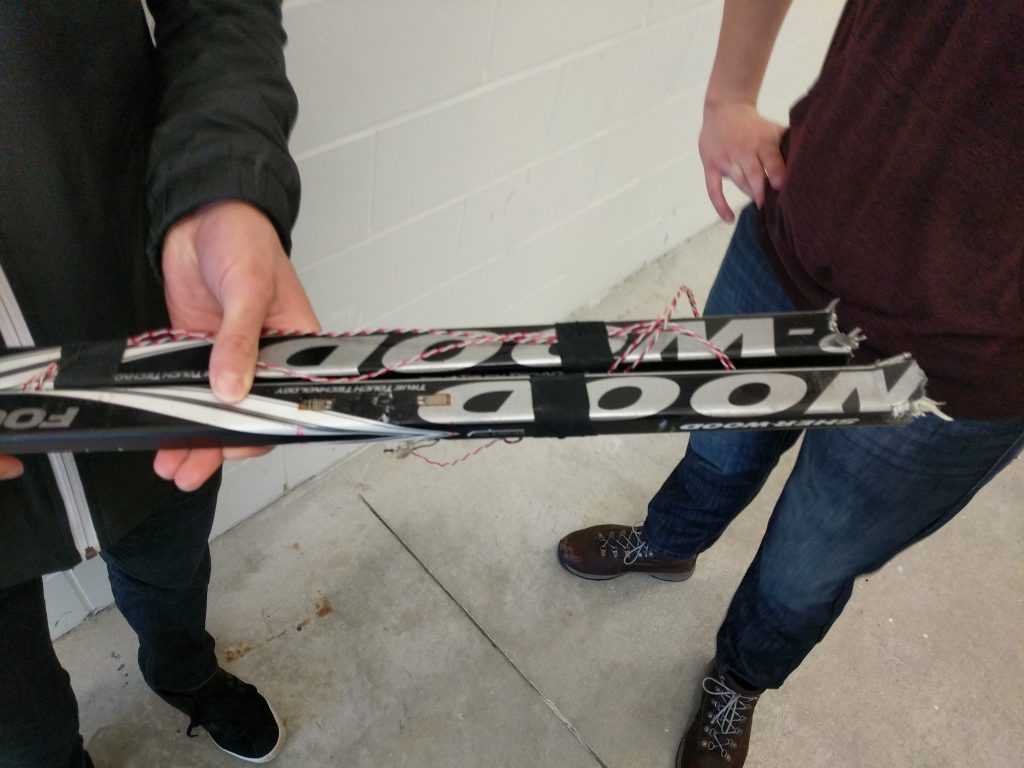Hello everyone,
I’m now back at UBC for the second term of my third year of Mechanical Engineering, which is on Term 1 of the winter session in the Co-op schedule. Trying to explain the Co-op schedule is always complicated, so I’ve just started saying I graduate on May 2020 (assuming everything goes as planned).
I ended up taking an online course over the summer and I strongly recommend it. It didn’t feel like an extra burden on top of Co-op work since it was only one course and now I only have to take five courses this term instead of the usual six.
And the best part?
Only one course starts at 8:00am. A dream come true.
Now, when I was first looking at this semester on paper it seemed like an easygoing semester. Only five courses? Sounds like smooth sailing to my final year. But engineering being engineering, this term is just as packed as all of my other ones. Here’s my quick student perspective off the courses this term.
MECH 325 – Mechanical Design 1
This course applies to all options of the Mechanical Engineering program (Thermofluids, Biomedical, Mechatronics, and General. More info on those here).
You learn all about gears, pulleys and all sort of mechanical systems. There’s tons of information and equations coming your way so get ready to soak in all types of variables. There’s group work involved with designing components and small mechanical systems, but not every week.
MECH 327 – Thermodynamics 2
Oh boy, here we go again. Thermodynamics 2: 2 Hot 2 Handle
Only students in the General and Thermofluids options of the program have to take this one. It’s one of the most important and applicable courses for the field I want to go into after graduation (energy). That first midterm didn’t go so well though, so this class has been my top priority.
The second midterm is two days from the time I write this, so wish me luck.
MECH 328 – Mechanical Engineering Design Project
This one applies to all options and it’s the main design course this term. The project this year is to design an autonomous ocean microplastic sampler.
Here’s a little information on microplastics and why they are increasingly a problem in the ocean: https://oceanservice.noaa.gov/facts/microplastics.html
The project is actually pretty neat, but it’s quite a bit of work. We don’t have to build anything, but we do have to develop our design using engineering design principles. This means that we have to be very thorough with our decision process and there’s tons of documentation is involved, so it’s good preparation for the engineering field.
MECH 386 – Industrial Fluid Mechanics
This course only applies to the Thermofluids option, so it is one of the more interesting courses for me. It’s essentially a continuation of previous fluid courses, but more grounded in industry applications. There’s a semester long project involved where you contact companies and try to solve problem they are having specific to fluid mechanics.
I did pretty well on the first midterm, so the course is currently on my good graces. The turbulent flow midterm is just around the corner, so I’m not sure that good grace will last.
PHIL 101 – Philosophy 101
This is my non-engineering course this term.
I highly recommend taking Philosophy. It’s a nice break from the regular engineering courses were we get smacked over the head with all of the rules that we have to follow. The physics and math with equation after equation after equation. I feel like this course provides a different perspective on things.
It’s nice to take a step back and go “Wait, do I even exist?” If I don’t exist neither does that grade I got on the Thermodynamics midterm. There’s comfort in that.
__
And that’s about it. Two design courses, two regular engineering courses, and one humanities for a total of five courses.
Like I said, it looks like a pretty straightforward semester. After this it’s an 8-month Co-op and then my final year. I just have to make it through this term first.
